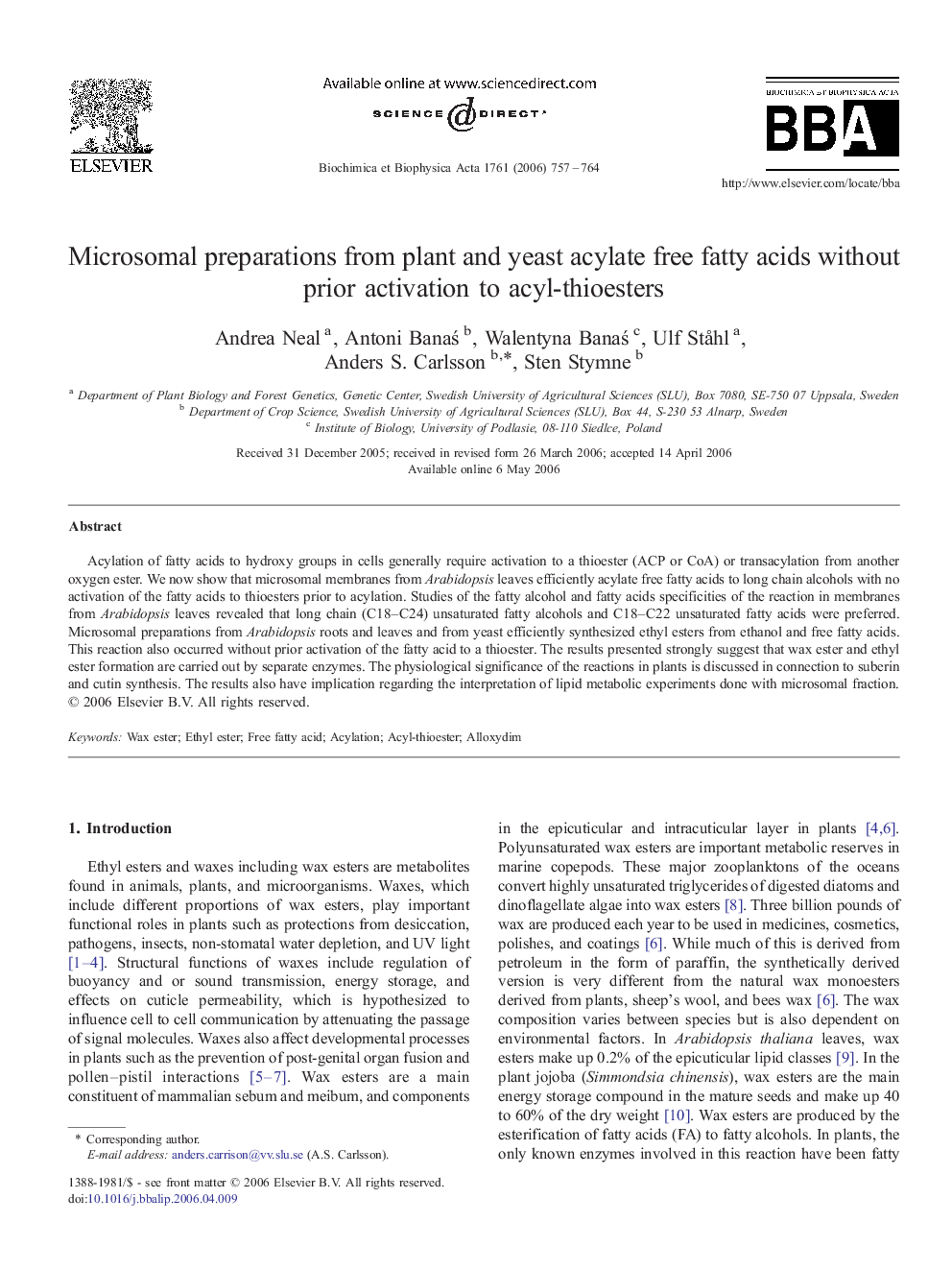| Article ID | Journal | Published Year | Pages | File Type |
|---|---|---|---|---|
| 1950297 | Biochimica et Biophysica Acta (BBA) - Molecular and Cell Biology of Lipids | 2006 | 8 Pages |
Abstract
Acylation of fatty acids to hydroxy groups in cells generally require activation to a thioester (ACP or CoA) or transacylation from another oxygen ester. We now show that microsomal membranes from Arabidopsis leaves efficiently acylate free fatty acids to long chain alcohols with no activation of the fatty acids to thioesters prior to acylation. Studies of the fatty alcohol and fatty acids specificities of the reaction in membranes from Arabidopsis leaves revealed that long chain (C18-C24) unsaturated fatty alcohols and C18-C22 unsaturated fatty acids were preferred. Microsomal preparations from Arabidopsis roots and leaves and from yeast efficiently synthesized ethyl esters from ethanol and free fatty acids. This reaction also occurred without prior activation of the fatty acid to a thioester. The results presented strongly suggest that wax ester and ethyl ester formation are carried out by separate enzymes. The physiological significance of the reactions in plants is discussed in connection to suberin and cutin synthesis. The results also have implication regarding the interpretation of lipid metabolic experiments done with microsomal fraction.
Related Topics
Life Sciences
Biochemistry, Genetics and Molecular Biology
Biochemistry
Authors
Andrea Neal, Antoni BanaÅ, Walentyna BanaÅ, Ulf StÃ¥hl, Anders S. Carlsson, Sten Stymne,
